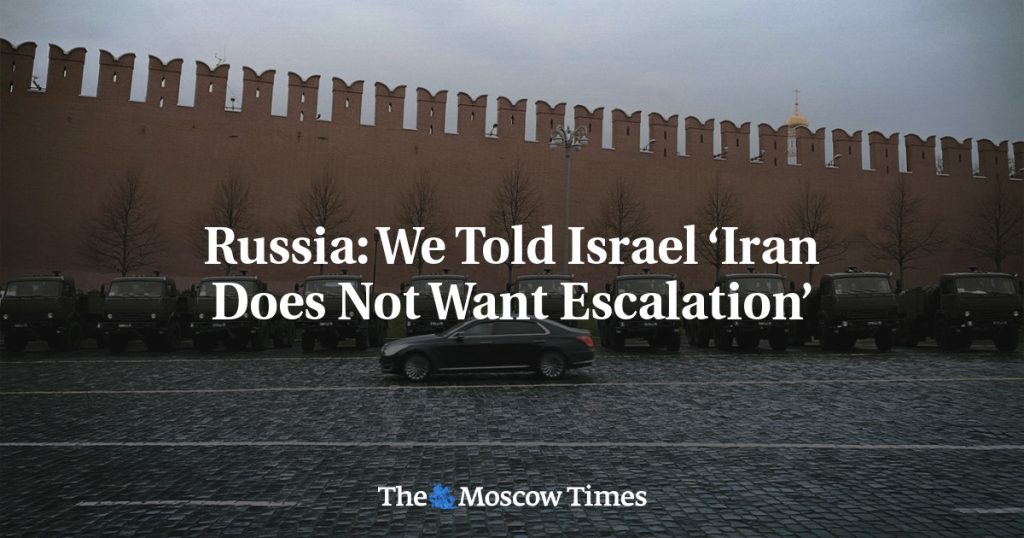Russia’s Foreign Minister Sergei Lavrov stated that Iran does not want escalation with Israel after reports of retaliatory strikes by the Israeli military. The Kremlin also mentioned that they are looking into these reports and urged all sides to exercise restraint to avoid further escalation in the region. The incident in question was an apparent Israeli strike on the Iranian consulate in Damascus that resulted in the killing of seven members of the Revolutionary Guards force, including a top commander. This event led to an unprecedented assault by Iran on Israel with drones and missiles, which were mostly intercepted by Israel and its allies.
Iran’s response to the Israeli strike on their consulate involved launching hundreds of drones and missiles towards Israel, with an attack on Isfahan province being reported soon after. Iranian officials indicated that the attack may have been carried out by small drones possibly launched from inside Iran. Despite the attack occurring in Isfahan province, which is known to house key atomic installations, there was no evidence suggesting that it was directed at any site related to Iran’s nuclear program. The situation highlights the escalating tensions between Israel and Iran and the need for all parties involved to exercise caution to prevent further escalation in the sensitive region.
The phone conversations between Russian, Iranian, and Israeli leadership made it clear that Iran does not seek escalation in the conflict. Russia, as a significant player in the region, emphasized the importance of restraint and avoiding actions that could lead to further escalation. The incident involving the Israeli strike on the Iranian consulate in Damascus and the subsequent Iranian response through drone and missile attacks underscored the volatile nature of the situation. Despite the destruction and casualties caused by the escalating conflict, efforts are being made to prevent further escalation and promote dialogue between the parties involved.
The Israeli strike on the Iranian consulate in Damascus sparked a chain of events that led to a wide-scale assault by Iran on Israel, involving hundreds of drones and missiles. Israel managed to intercept most of the attacks, which were seen as retaliation against Tehran. The subsequent attack on Isfahan province further heightened tensions in the region, with Iranian officials attributing the incident to small drones possibly launched from within Iran. The lack of any indication that the attack targeted Iran’s nuclear facilities suggests that the conflict is driven by political and military tensions rather than direct threats to Iran’s atomic program.
The incidents between Israel and Iran highlight the complex geopolitical dynamics in the Middle East and the involvement of major powers like Russia in mediating potential conflicts. Russia’s communication with both Iran and Israel played a crucial role in conveying the message that Iran does not seek escalation, despite the volatile situation. The calls for restraint from all sides and the emphasis on preventing further escalation demonstrate the awareness of the potential consequences of military actions in the region. As tensions persist between Israel and Iran, diplomatic efforts and communication channels remain essential to avoid a full-blown conflict with far-reaching implications for the region.
In conclusion, the recent escalation of tensions between Israel and Iran, with retaliatory strikes and military actions on both sides, underscores the fragility of the situation in the Middle East. Russia’s efforts to mediate and convey the message of restraint to all parties involved reflect the importance of diplomatic engagement in resolving conflicts. The need for dialogue, communication, and de-escalation measures is crucial to prevent further violence and instability in the region. As the situation continues to unfold, the international community must remain vigilant and supportive of efforts to peacefully resolve conflicts and avoid catastrophic consequences for the region and beyond.


